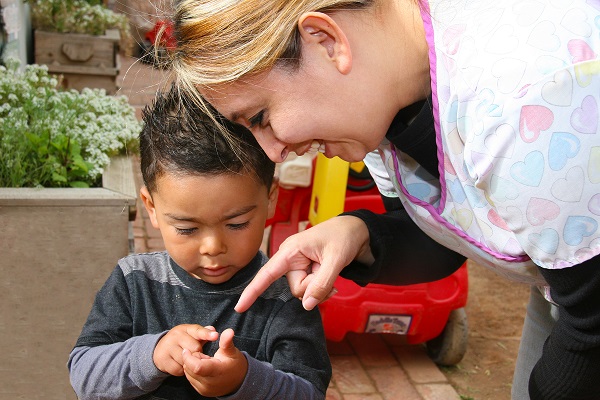Asking Questions, Birth to Five
Learn strategies for using questions to extend conversations with infants, toddlers, and preschoolers.
 Adult–child interaction refers to the dynamic exchanges and relationships between educators and young learners that foster meaningful learning, social and emotional development, and school readiness. The resources in this collection focus on building and strengthening adult–child interaction. Strategies include creating positive discipline, encouraging curiosity, self-regulation, and using questions to support learning.
Adult–child interaction refers to the dynamic exchanges and relationships between educators and young learners that foster meaningful learning, social and emotional development, and school readiness. The resources in this collection focus on building and strengthening adult–child interaction. Strategies include creating positive discipline, encouraging curiosity, self-regulation, and using questions to support learning.
Learn strategies for using questions to extend conversations with infants, toddlers, and preschoolers.
Conversations help children develop varied vocabularies. Find out how to use everyday talks with children to help them learn more vocabulary words.
Expansions are ways to expand on what a child says or does during a conversation. This in-service suite describes how to use expansions to extend conversations with infants, toddlers, and preschoolers to promote their language development.
Use this video to find ways to reflect and deepen practices to create welcoming environments for infants, toddlers, and their families.
Discover features of the physical and social classroom environment that can maximize children's engagement and learning. Learn to assess the physical space and match classroom content to learning goals and interests.
View this webinar to explore a framework for supervision and support of teaching staff. It provides examples that focus on helping promote preschool teachers’ use of effective classroom interactions.
This in-service suite introduces the foundation of the Framework for Effective Practice. It focuses on engaging interactions and environments.